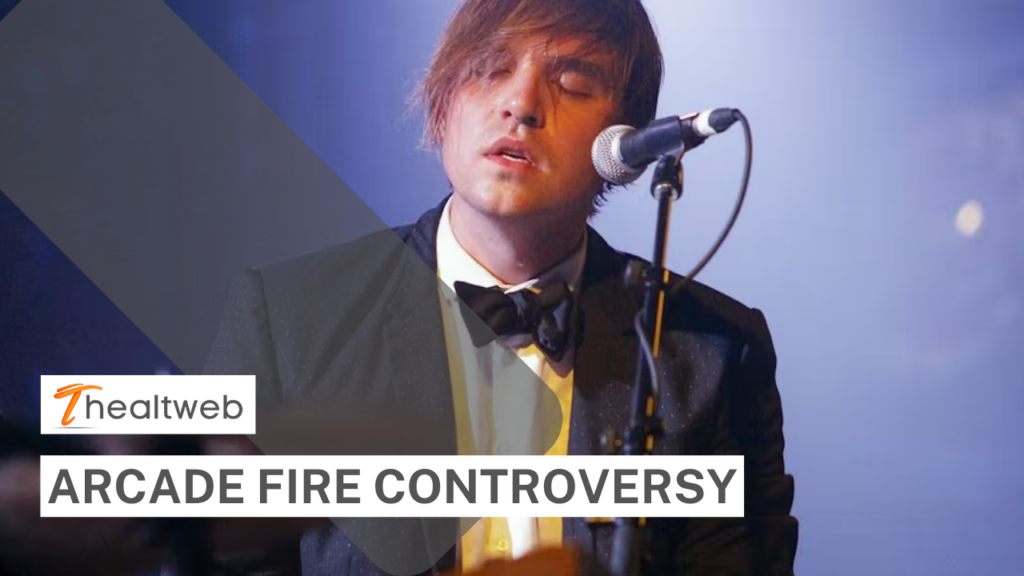Offstage allegations of improper behavior contrast with Butler’s good public character. The vocalist says in extensive statements that his adulterous encounters were mutual.
Arcade Fire is one of the most successful indie rock success stories of all time: a scrappy band that moved from tiny Montreal clubs to sold-out gigs all over the world sold millions of CDs and won a Grammy for Album of the Year. The band is led by singer-guitarist Win Butler and his long-term spouse, singer and multi-instrumentalist Régine Chassagne, whom he married in 2003; the lineup also included Will Butler, Win’s brother, until a recent amicable departure.
Their reputation as a sincere family band contributes to their popularity, as do lyrics about love, lost innocence, and the quest for something true to cling to in difficult times. Butler and Chassagne have been active about social concerns and have donated money for charitable causes as the band has expanded. They’re known as a feel-good band with a feel-good tale.
Related – Jack Manifold Controversy – EXPLAINED!
The band produced an album called WE earlier this year, which redoubled their sincere presentation. Butler defined the album’s title and image as representing, in part, “the dream of Martin Luther King Jr., the iron of the nail of his namesake’s church door, the innocence and the error, the universal fault, and the perfect imperfection.” A month later, when the album’s second single, “Unconditional I (Lookout Kid),” was released, Arcade Fire tweeted that the song reminded them to “… trust your heart, trust your head, trust your body, trust your soul.” The following tweet reads: “Shit will get worse before it gets better, but it always gets better, and no one is perfect.”
Several persons who have spoken with Pitchfork in recent months have stated that Win Butler’s virtuous public image is not totally consistent with his offstage actions. Three women filed complaints of improper sexual contact with Butler, citing age disparities, power relationships, and the atmosphere in which they happened. All three women were passionate Arcade Fire fans between the ages of 18 and 23 at the outset of their relationships with Butler, which occurred between 2016 and 2020 when he was between the ages of 36 and 39.
Butler sexually assaulted a fourth individual, who is gender-fluid and uses they/them pronouns, twice in 2015, when they were 21 and he was 34: Once when they were in a car together, and once after he reportedly showed up at their apartment despite text messages warning him not to. All four agreed to use aliases in this piece. Pitchfork obtained screenshots of text and Instagram conversations exchanged between them and Butler, as well as interviews with friends and family members who say they were notified about the alleged occurrences.
Butler responded to Pitchfork’s request for comment through crisis public relations specialist Risa Heller in New York. Butler admitted having sexual relations with each of the four persons but claimed that they were consensual and not instigated by him, in his first written comment to Pitchfork in response to the claims in this article. Butler promised to put Pitchfork in touch with many women who had consenting sexual experiences with him in the past through Heller.
The spokesperson then presented a written statement from Chassagne in support of Butler’s point of view, concluding, “He has lost his path, and he has found his way back.” (The complete statement appears at the bottom of this story.)
Related – Piers Morgan: The controversial British TV personality – CONTROVERSY!
Butler addresses the claims again in a second statement sent to Pitchfork and reprinted in full later in the piece, speaks about a period of drinking and melancholy, and apologises many times.
“While these interactions were all voluntary, I am very sorry to anybody I have offended with my behaviour,” he wrote. “As I look forward, I am continuing to learn from my errors and trying hard to become a better person, one of whom my kid can be proud.” […] I’m sorry I wasn’t more conscious and tuned in to the impact I have on others – I messed up, and although it isn’t an excuse, I will continue to look forward and repair what can be healed, as well as learn from my mistakes.”

